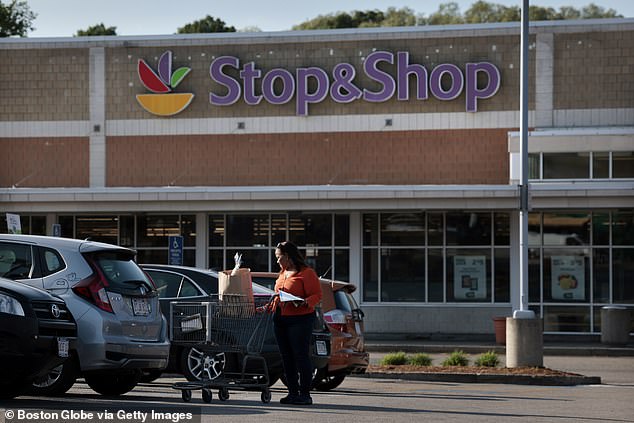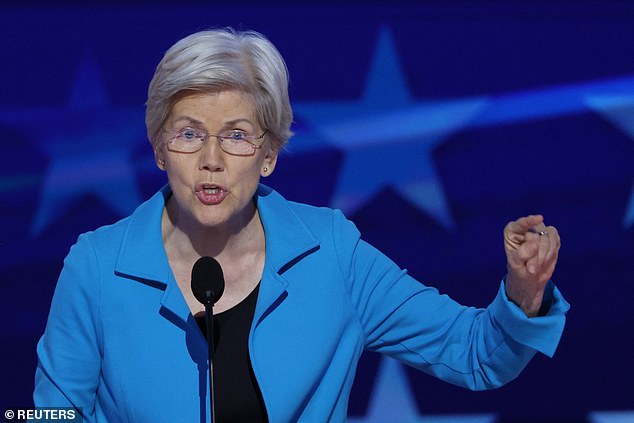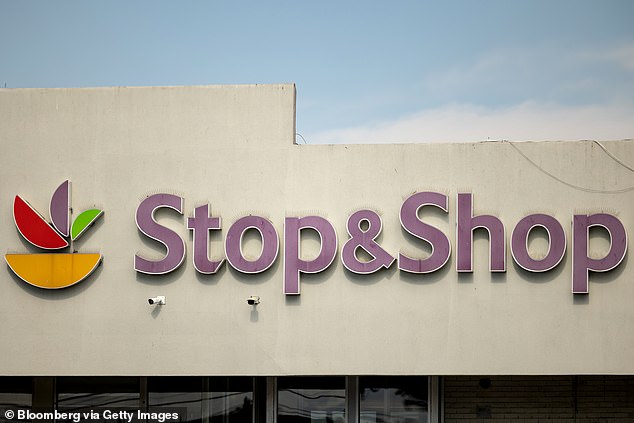A popular East Coast supermarket chain is under fire over accusations that its prices are cheaper in wealthier neighborhoods.
Stop & Shop, which has more than 400 stores in New York, New England and New Jersey, is facing lawsuits over price differences at its Boston locations.
Last year, city youth organizers released research showing the supermarket chain charged more than 20 percent more for some foods in the working-class Jamaica Plain neighborhood compared to Dedham, a more affluent suburb of the city. .
For example, the report found that a store-brand frozen pepperoni pizza cost $6.99 in Jamaica Plain and just $5.29 in Dedham, a difference of 24.3 percent.
Now Senator Elizabeth Warren has increased pressure on the food giant, demanding that it clarify the reasons for these price discrepancies, the Boston Globe reported.
In a letter to the CEO of Stop & Shop’s parent company, the Massachusetts senator said he should not “engage in corporate profiteering schemes that squeeze residents and families.”
Stop & Shop, which has more than 400 stores in New York, New England and New Jersey, faces claims over price differences at its Boston locations.
the four pages letter Frans Muller, CEO of Ahold Delhaize, demanded that the company provide information about Stop & Shop’s pricing algorithms and decision-making processes at all stores.
It was referring to the research, which was carried out in June 2023 by a group of Boston youth workers at the Hyde Square Task Force.
The Task Force purchased nearly identical groceries at Stop & Shop locations in the Jamaica Plain neighborhood and in the affluent suburb of Dedham.
“They found that the cost of several basic items was higher in Jamaica Plain: for example, a box of Bubba’s turkey burgers cost $11.49, compared to $9.49 in Dedham,” the letter said.
“Stop & Shop brand crinkle cut fries were 90 cents more in Jamaica Plain, and Smithfield bacon was two dollars more.”
In total, the young volunteers found that the same shopping cart of items cost $34 (or 18 percent) more in the largely minority and working-class area than in suburban Dedham.
If a household spends $300 a week on groceries, they would spend $2,808 more a year at the Jamaica Plain store than at the Dedham store, according to the report.
“These types of price discrepancies impose significant burdens on already struggling consumers,” Warren wrote, noting that the median household income in Jamaica Plain is $35,900 a year.
Stop & Shop confirmed to the Boston Globe that it had received the letter and plans to respond in the coming weeks.
“Under no circumstances does Stop & Shop take into account the socioeconomic composition of the shopping district when setting prices,” a company spokesperson said.
The supermarket chain said several factors, including rental prices, store sizes and labor costs, could affect prices from location to location.
The Dedham location, for example, is priced similarly to stores in Hyde Park and Roslindale “in part because they have tenants in these locations that offset operating costs,” the company told the outlet.
It added that it is carrying out a “multi-year strategy to invest in prices and reduce daily prices in all its stores.”
The Boston Globe visited four stores in Greater Boston late last month to see if the price discrepancies highlighted in the report still exist.
It compared prices on 15 items at stores in Dedham and Jamaica Plain, as well as locations in Grove Hall and Hingham.

Youth organizers found that the supermarket chain was charging nearly 20 percent more for food at a store in the working-class Jamaica Plain neighborhood (pictured) compared to Dedham, a more affluent suburb of the city.

Senator Warren said the company should not “engage in corporate profit schemes that squeeze residents and families.”

Senator Elizabeth Warren has put pressure on the food giant, demanding that it clarify the reasons for these price discrepancies.
The outlet found that the Dedham store had the lowest prices of the four locations for 12 of the 15 items.
It comes as grocery store prices are among the top issues for Americans ahead of the presidential election.
Vice President Kamala Harris has laid out plans to introduce a federal ban on price gouging across the food industry if she wins.
Price gouging occurs when retailers dramatically increase the price of essential items, usually to take advantage of an adverse situation such as the Covid-19 pandemic.
Kroger, the largest supermarket chain in the United States, is also being investigated for its use of electronic price tags on store shelves across the country.
Senator Warren and Pennsylvania Senator Bob Casey announced earlier this year that they were investigating the practice to see if the chain was engaging in price gouging.
Meanwhile, earlier this year, Stop & Shop abruptly closed 32 “underperforming” stores.
The chain said it will close 10 stores in New Jersey, eight stores in Massachusetts, seven stores in New York, five stores in Connecticut and two stores in Rhode Island.

